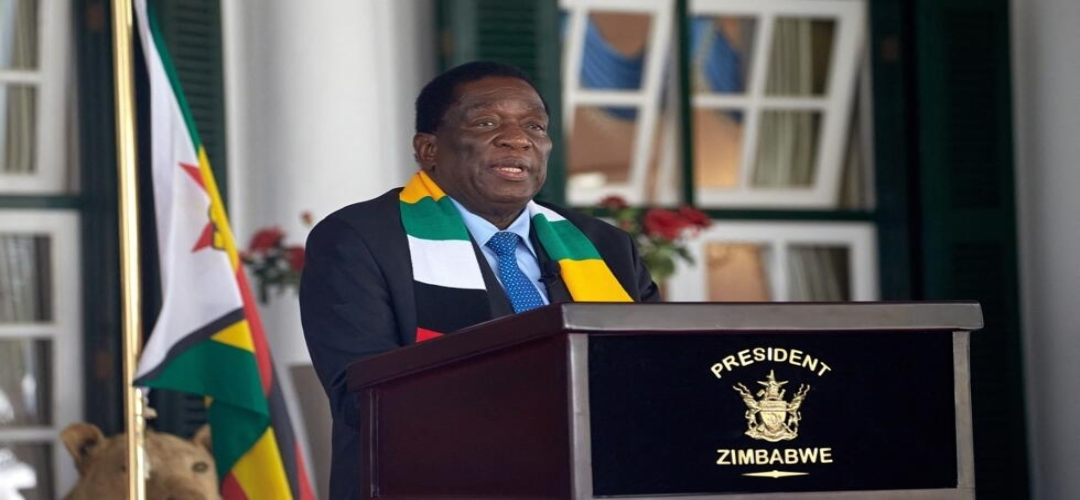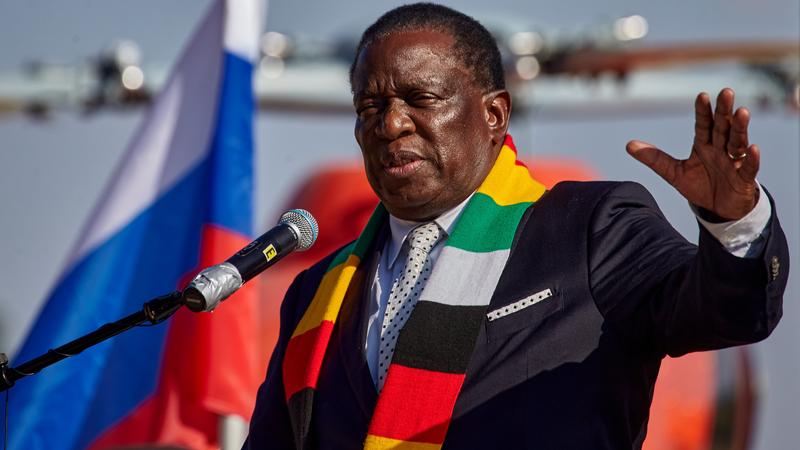Zimbabwe Post Robert Mugambe
September 1, 2023 | Expert Insights

According to the electoral commission, Zimbabwe's president, Emmerson Mnangagwa, has been elected to a second term with 52.6 per cent of the vote. However, the opposition has contested the victory, alleging widespread vote rigging, silencing dissent, election irregularities, clamping down on the opposition, and other undemocratic measures.
Known as “The Crocodile” because of his shrewd and ruthless approach, Mr Mnangagwa is the third-ever president of Zimbabwe. He rose to power after spearheading a military coup against President Robert Mugabe in 2017, who had been ruling the country for 37 years.
Robert Mugabe is widely considered to have ruined Zimbabwe over the course of his long regime. When Mnangagwa became president, he came with an ostentatious promise of a new start, a change from Mugabe’s economic mismanagement and authoritarian rule, promising a new Zimbabwe “open to business”. However, the years after Mugabe have revealed these promises to be hollow as the country continues to grapple with the same issues.
Background
Mugabe was one of the freedom fighters who led one of the two main arms of the Zimbabwe nationalist movement-ZANU and ZAPU- in the 1970s against the white colonial rulers. When Zimbabwe won its independence through a bloody liberation war, he became its first democratically elected leader in 1980, based on actual popular support.
Despite instances of mass state violence, Mugabe’s first decade and a half as ruler of the country was upheld by several international actors, and he was viewed as a kind of liberating hero. Southern Africa faced the moral ramifications of apartheid in South Africa, and the climate was such that criticising Mugabe could easily be branded as an apologist for apartheid or supporting white supremacy, given that Mugabe was a leading figure against white South Africa, leading the international community’s reluctance to criticise him. Mugabe continued his techniques of political violence that began during the liberation war.
Through until the late 1990s, Zimbabwe had a one-party state under Mugabe’s ZANU-PF party (Zimbabwe African National Union–Patriotic Front) until the MDC (Movement for Democratic Change) emerged out of a union movement. When the MDC opposition won the first round of the elections in 2008, Mugabe's government responded with a violent clampdown. This practice of persecuting the opposition and holding unfair elections continued.
Mnangagwa was a close associate of Mugabe, played a leading role in his regime, and participated in many of the human rights abuses. In November 2017, when Mnangagwa was vice president, Mugabe fired him in an alleged move to hand over the presidency to his wife, Grace Mugabe. A military coup ensued, and Mnangagwa came to power.
The Mugabe government's policies resulted in hyperinflation, economic crisis, election irregularities, corruption, and brutality, leaving the country's infrastructure in shambles. With one of Africa's most literate populations, Zimbabwe witnessed its economy crash, and millions of people fled for jobs in foreign countries.

Analysis
Early into his rule, Mnangagwa promised to pass political and economic reforms and re-engage with the international community. However, time has revealed these promises to be mere optics and rhetoric, describing them as "mascara on a frog".
While the government has taken measures to replace repressive legislation, such as the Public Order and Security Act, the replacements have been criticised as inadequate or unconstitutional. The media continues to be politically controlled by the ruling party. The judiciary leans heavily towards the ZANU-PF, barring a few instances of independence.
State violence continues with brutal military crackdowns on political protests and dissent. Security forces continue to target opposition members with arrests and several instances of disappearances or kidnappings. Based on several interviews, a report found that Mnangagwa’s rule was in many ways more repressive than Mugabe’s.
Military involvement in politics and economy has increased under Mnangagwa, who uses the military for commercial and political purposes. The military is particularly involved in the mining and fuel sectors.
Overall, the Mnangagwa government has not overhauled the political system, and promises of reform have not failed to manifest with little change in elections, laws, state violence, and political institutions.
Zimbabweans still face economic crisis. In July this year, Zimbabwe had one of the highest inflation rates in the world - prices had shot up by 101.3 per cent from the previous year. Widespread unemployment continues, with only 25 per cent of Zimbabweans holding formal jobs.
Despite the government introducing a new currency, the economy is again close to collapsing with rampant shortages of fuel, bread, and power and skyrocketing inflation, crushing purchasing power. The country’s GDP growth dropped from 3.5 per cent in 2018 to –7 per cent in 2019. A severe drought has further strained the economy.
Finance for infrastructure projects is a major issue for Zimbabwe: it cannot access long-term international capital because of its $14 billion debt to foreign lenders, including the World Bank and African Development Bank. Efforts to restructure its debt are hindered by the lack of support from Western governments because of its unfair elections and failure to adhere to democratic standards. Its recent flawed election will further jeopardise its bid to re-engage with the international community.
Assessment
- Mnangagwa's regime has not brought about the promised reforms, and Zimbabwe continues to face the major political and economic issues it faced under Mugabe.
- The recent elections contested as being unfair and irregular will further isolate it in the international arena and hinder its efforts to gain foreign support.
- Sadly for the people of Zimbabwe, like many other nations of Africa, liberation from the colonists has not brought about real freedom. The colonisers have been replaced with homegrown clones, as aptly described by George Orwell in his 'Animal Farm.'








Comments